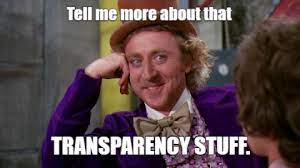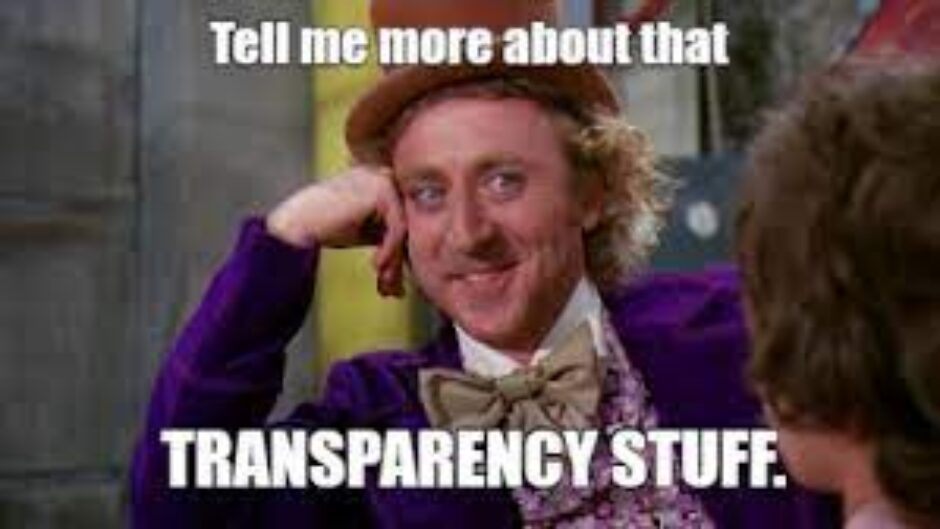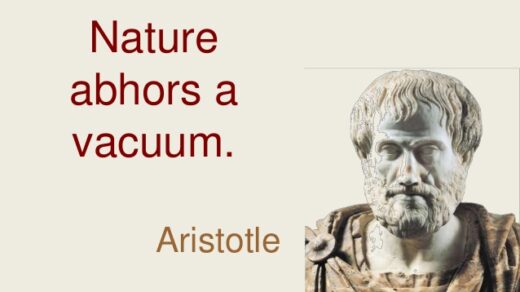
I have written numerous times that fundraising is about relationships. And those relationships are usually built on trust. But are charities truly being transparent? Or, are they worried about sharing “too much information”? It fascinates me that so many organizations do not practice transparency — with the outside world or even internally with their own board and staff.
One of my pet peeves is the notion of making up someone else’s mind for them. We, as fundraisers, cannot afford (literally) to do that. Furthermore, it is a disrespectful exercise. Far too often, senior management tries to “protect” the masses (boards or the outside world) by not being transparent about issues as they arise. In reality, their veil of protection is merely a weak position that they do not want to be shared.
Ethical standards in fundraising are a must. And, in my opinion, if you lack transparency, you are not really ethical. It is a much better idea to share information than not. Perhaps by sharing information, you may find that people can actually help you achieve your goals. As a smart person once said, “if you want money ask for advice; if you want advice, ask for money”.
I once ran a capital campaign, and we had hit our monetary goal. The campaign chairs wanted to keep that a secret because they were under the (incorrect) assumption that prospective donors wouldn’t support the campaign further because the goal was already reached. The exact opposite is true. People like to be associated with a winning team. Imagine if the timing for the campaign was almost over and you had only raised 25% of the goal. People might be hesitant to support your cause — nobody wants to be on the Titanic.
Confusing Lack of Transparency with Protectionism
A lack of transparency under the guise of protecting someone rarely protects that person. Transparency (and accountability) are at the cornerstone of any charity’s work. If you cannot be transparent with your inner circle, you have the wrong inner circle. Or, you are not very trustworthy yourself. I have seen many charities lay off many of their staff over the last 15 months, and I have seen charities accept government funding to help them through this difficult time. No shocker there. But, I have also seen instances where the charities give raises and bonuses to their most senior management while the rank-and-file staff has been laid off. Furthermore, one charity claimed that the senior management was taking a pay cut during the pandemic, only to have those funds repatriated later. That is not transparent. That isn’t very ethical.
Transparency is the ability to tell it like it is. I have seen organizations try to muddy a progress report to a funder because the program was not as successful as originally hoped. That is perfectly acceptable. People learn from their mistakes, and perhaps the mistake your organization made can save another organization from making the very same mistake in the future. This is part of the notion of Noble Failure which I wrote about here and here.
In a business (yes, fundraising IS a business) like ours, transparency and trust are what separates good charities from great ones. No donor wants to be the last one to hear about some news regarding their charity of choice. Let’s all commit to a higher degree of transparency — I guarantee that it will help your organization’s credibility and steadfastness.
Until next week.
L’chaim,
jack




